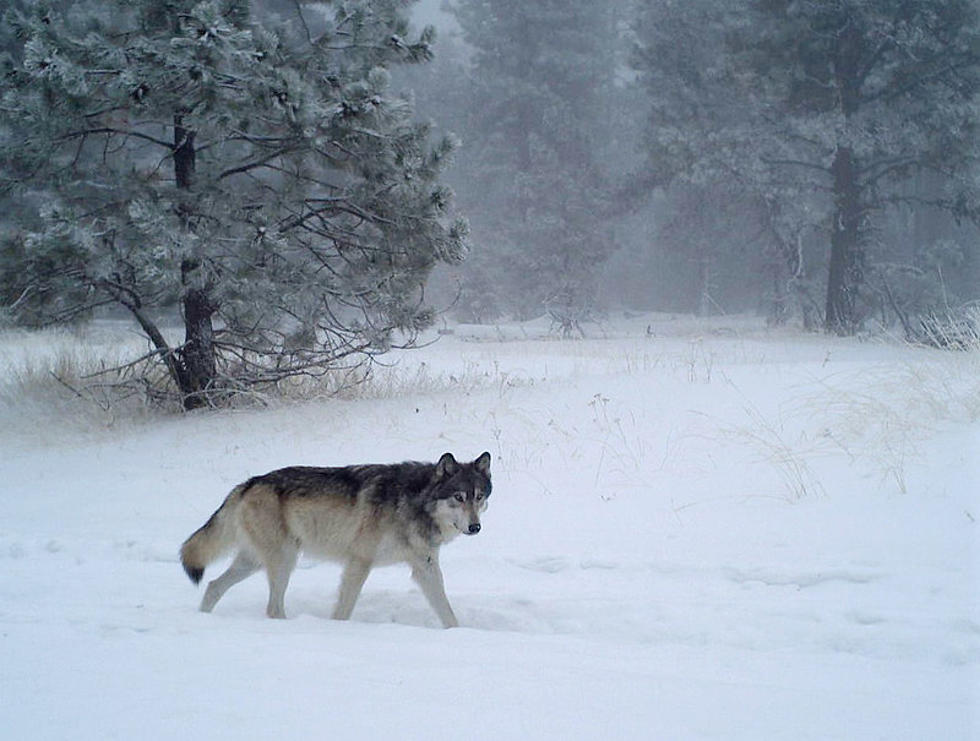
Feds: Protection not needed for Northern Rockies Gray Wolves
Laura Lundquist
(Missoula Current) The U.S. Fish and Wildlife Service has decided against relisting the gray wolf under the Endangered Species Act, choosing instead to develop a national recovery plan, which wolf advocates don’t think will go far enough.
On Friday, the U.S. Fish and Wildlife Service announced that a relisting of the gray wolf in the Northern Rocky Mountains was not warranted because “wolves are not at risk of extinction now or in the foreseeable future.”
Prompted by petitions to re-list the gray wolf, the agency conducted a peer-reviewed assessment of the situation using computer modeling and input from states, tribes, universities and the public. The model assessed various threats, including human-caused mortality, existing regulatory mechanisms, and disease, according to the Fish and Wildlife Service release.
As of December 2022, approximately 2,800 wolves were distributed across at least 286 packs in seven Western states.
“This population size and widespread distribution contribute to the resiliency and redundancy of wolves in this region. The population maintains high genetic diversity and connectivity, further supporting their ability to adapt to future changes,” the release said.
In July 2021, 70 organizations petitioned to list the gray wolf population in the Northern Rocky Mountains after the Gianforte administration took over in Montana and both Montana and Idaho passed laws requiring that the wolf populations be reduced significantly.
Because wolf advocates have often questioned how delisting wolves in one region, such as the Northern Rocky Mountains, affects populations in other regions where wolves are just beginning to recover, the U.S. Fish and Wildlife Service will develop the first nationwide gray wolf recovery plan within two years, which is intended to provide a more holistic approach to wolf recovery.
In December, the U.S. Fish and Wildlife Service initiated a program to create a national dialogue on how communities can better live with gray wolves by focusing on conflict prevention and community security. The results will inform future Fish and Wildlife Service policies and rulemaking.
The Fish and Wildlife Service depends on help from state and tribal partners, but some are complicating efforts to craft sustainable solutions. The Fish and Wildlife Service release said Montana and Idaho “recently adopted laws and regulations designed to substantially reduce the gray wolf populations in their states using means and measures that are at odds with modern professional wildlife management.”
Idaho law lets the state hire private contractors to kill wolves, has no limit on how many wolves an individual can kill, and permits year-round trapping on private land. It also allows hunters and trappers to chase wolves with hounds and all-terrain vehicles. In 2022 and 2023, Idaho hunters and trappers killed more than 560 wolves.
Prior to 2021, Montana had more moderate wolf regulations based on fair-chase ethics, and snares had long been prohibited. Now, wolf hunters and trappers can use snares and bait, and on private land, night-vision scopes and spotlights are allowed. Hunters are limited to 10 wolves, as are trappers.
Montana’s new laws also lengthened the wolf-trapping season by four weeks and established a bounty program to reimburse costs associated with killing wolves. Montana hunters and trappers have killed about 450 wolves in the 2022 and 2023 seasons, which run until March 15.
It’s those laws and regulations that prompted wolf advocates to petition for relisting and which now prompt reactions of disappointment from those same groups.
A coalition of 10 wildlife organizations put out a joint release criticizing the agency’s decision, saying it allows Montana, Idaho and Wyoming to continue allowing aggressive hunting and trapping methods and quotas to reduce the wolf population. The 10 organizations include Western Watersheds Project, Western Environmental Law Center, International Wildlife Coexistence Network, Predator Defense, Protect the Wolves, Trap Free Montana, WildEarth Guardians, Wilderness Watch, Alliance for the Wild Rockies and Friends of the Clearwater.
“How much worse must so-called wolf ‘management’ policies be in the Northern Rocky Mountain states in order for the federal government to take action?” asked Lizzy Pennock, carnivore coexistence attorney at WildEarth Guardians. “With this decision, the U.S. Fish and Wildlife Service has failed wolves, and has failed future generations of people who may never have the opportunity to hear a wolf howl.”
The Center for Biological Diversity said it may take the U.S. Fish and Wildlife Service to court for failing to relist.
“Unlike the Service, we won’t stand idly by and watch as northern Rockies wolves are slaughtered year after year,” said Akland. “Wolves are an invaluable part of their ecosystems and deserve strong federal protections.”
Susan Holmes, Endangered Species Coalition executive director, also expressed disappointment but said her group looks forward to the development of a national recovery plan.
